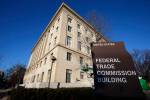Financial leaders agree: LV recovery will take time
A bankruptcy lawyer, head accountant and hard-money lender who spoke to a business group on Friday agreed that the Las Vegas recession will run long and cut deep.
Unemployment will reach 15 percent after the holidays, up from 13.9 percent now, predicted Mike Shustek, founder of Vestin Group, a hard money lender who makes loans secured by real estate.
Marginal hotel-casinos that are loaded with debt will be cannibalized, said William Wells, managing partner for RSM McGladery, an accounting firm.
In fact, one reason commercial foreclosures are not worse is that banks don't want to take back collateral so they are continuing to negotiate with borrowers, said Greg Garman, managing partner for the law firm Gordon Silver.
The three executives spoke to about 75 attendees at the CEO-CFO Group at McCormick & Schmick's on Flamingo.
Garman estimated lenders provided $3 trillion to $4 trillion worth of debt to Southern Nevada borrowers over the last few years.
He said the Fontainebleau Las Vegas is an example of the problem hitting Southern Nevada now.
"You can't refinance it and can't sell it," Garman said of the bankrupt property which is now stalled and unfinished.
So far, $2 billion has been spent building the $3 billion Strip casino property, but it would take another $1.5 billion to complete it, he said. Then, it would only generate $100 million in yearly cash flow, he said.
Penn National Gaming is offering "less than $300 million" to buy it, according to news reports, but that wouldn't even cover the $400 million owed contractors and subcontractors with mechanics liens on the property.
As bad times continue, Garman predicted a flood of lawsuits among business partners and against lenders. Debtors will "swing for the fences, because you don't have a lot of options," he said.
"You are not going to see new construction in commercial (properties)," Shustek said.
Vestin's most recent loan was $18 million to a company that bought a performing pool of $40 million in loans from the Federal Deposit Insurance Corp., he said.
In the residential sector, Shustek predicted little new construction until the inventory of foreclosed properties is sold, because these homes are going for less than the cost of building a new home.
Developers have cut the price of high-rise condominiums by 30 percent to 40 percent, Shustek said.
While many low-end homes have gone through foreclosure, "you are going to see the big-end (homes) start to get it," Shustek said.
Wells expects a W-shaped recovery for housing, with prices climbing and then falling again.
"Where is the job growth going to be coming from?" the accounting executive asked.
The government will make a housing recovery even harder when it is forced to raise interest rates to fight inflation, Wells added.
"It's not going to be the fantastic numbers we had 2003 and 2006," Wells said. He said a slower economic pace will become the new normal.
Businesses are changing their strategies. "Just growing for growth's sake is not the way to go. People are learning how to run their businesses with fewer people," he said.
Contact reporter John G. Edwards at jedwards@reviewjournal.com or 702-383-0420.























